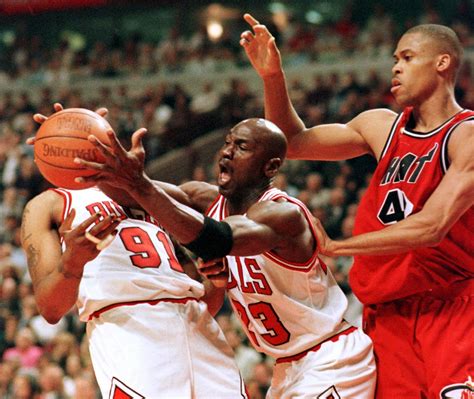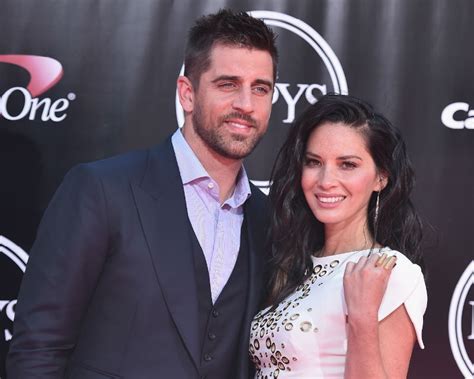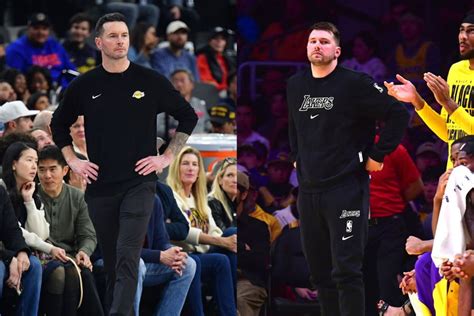
Michael Jordan’s insatiable competitive drive is the primary reason he remains distant from a complete, emotional departure from the sport of basketball, despite his formal retirement over two decades ago.
Michael Jordan, arguably the greatest basketball player of all time, revealed that his unyielding competitive spirit continues to keep him tethered to the game, even long after his official retirement. In a recent interview, Jordan discussed his enduring passion for competition and how it prevents him from fully disconnecting from the world of basketball. His remarks offer insight into the mindset of one of the most driven athletes in history and shed light on why he remains an influential figure in the sport.
“I can’t close the door totally because of the competitive fire that I have, and it burns within me,” Jordan stated. This simple yet profound declaration encapsulates the essence of Jordan’s relationship with basketball and highlights the intrinsic motivation that propelled him to unparalleled success. The quote suggests that for Jordan, basketball is not merely a profession but an extension of his identity, inextricably linked to his desire to compete and excel. This competitive fire, burning “within him,” acts as a constant reminder of his past glories and a perpetual challenge to remain engaged with the sport in some capacity.
Jordan’s career is defined by relentless pursuit of perfection and an unwavering commitment to victory. From his days at the University of North Carolina to his legendary tenure with the Chicago Bulls and his brief stint with the Washington Wizards, Jordan consistently demonstrated an unparalleled level of intensity and determination. He led the Bulls to six NBA championships, earning Finals MVP honors each time, and secured five regular-season MVP awards. His achievements are a testament to his extraordinary talent and work ethic, cementing his legacy as one of the most dominant athletes in any sport.
His competitive spirit wasn’t limited to just on-court performance; it permeated every aspect of his life. Stories abound of Jordan’s fierce competitiveness in practice, his relentless trash-talking, and his unwavering belief in his ability to overcome any obstacle. This mentality not only drove him to individual success but also inspired his teammates to raise their own games, creating a culture of excellence within the Bulls organization.
The impact of Jordan’s competitive spirit extends far beyond his playing career. He has remained involved in basketball through various ventures, including his ownership of the Charlotte Hornets. While his tenure as owner has been met with mixed results, his passion for the game is undeniable, and his involvement reflects his desire to contribute to the sport he loves.
Furthermore, Jordan’s influence can be seen in the countless athletes who have emulated his playing style, adopted his mental toughness, and strived to achieve the same level of success. His legacy as a competitor continues to inspire generations of basketball players and serves as a reminder of the importance of dedication, perseverance, and an unyielding pursuit of excellence.
Jordan’s statement about not being able to “close the door totally” suggests that he remains open to opportunities to engage with basketball, whether through advisory roles, mentoring, or other forms of involvement. While he may no longer be playing on the court, his competitive fire ensures that he will always be connected to the game that defined his life.
The question arises as to what exactly this “competitive fire” entails and how it manifests itself in Jordan’s post-retirement life. Does it involve a desire to prove himself in new challenges, a need to maintain his status as a basketball icon, or simply a deep-seated love for the game? The answer likely lies in a combination of these factors, each contributing to his enduring connection to basketball.
Ultimately, Michael Jordan’s statement serves as a powerful reminder that true greatness is not merely a product of talent but also a result of an unwavering competitive spirit. It is this fire that separates the exceptional from the ordinary and allows individuals to achieve extraordinary things. For Jordan, this fire continues to burn brightly, ensuring that his legacy as a competitor will endure for generations to come. He remains a global icon, and his influence extends far beyond the basketball court. From his successful business ventures to his philanthropic endeavors, Jordan’s competitive spirit continues to drive him to excel in all areas of his life. His story is a testament to the power of passion, dedication, and an unyielding pursuit of excellence.
His approach to business mirrors his approach to basketball – a relentless pursuit of excellence, a willingness to take risks, and an unwavering belief in his ability to succeed. He has built a successful brand empire that extends far beyond basketball, including clothing, shoes, and other merchandise. His business acumen is a testament to his intelligence and his ability to adapt to new challenges.
His philanthropic efforts also reflect his competitive spirit. He is committed to making a positive impact on the world, and he approaches his charitable work with the same level of intensity and dedication that he brought to the basketball court. He has supported numerous causes, including education, healthcare, and disaster relief.
Michael Jordan’s enduring legacy is a testament to the power of the human spirit. His story is an inspiration to people all over the world, and his competitive fire continues to burn brightly, ensuring that his influence will be felt for generations to come. He continues to be a role model for young athletes and aspiring entrepreneurs alike, demonstrating that with hard work, dedication, and an unwavering belief in yourself, anything is possible.
The interview also offered a glimpse into Jordan’s reflections on the current state of the NBA. While he refrained from making sweeping pronouncements or offering unsolicited advice, his comments suggested that he remains keenly aware of the evolving landscape of the sport. He acknowledged the changing dynamics of the game, the rise of new stars, and the increasing emphasis on analytics and data-driven decision-making.
Furthermore, Jordan’s remarks underscored the importance of maintaining a competitive edge in a league that is constantly becoming more competitive. He emphasized the need for players to not only possess exceptional talent but also to cultivate the mental toughness and unwavering determination that are essential for success at the highest level.
In addition to his reflections on the NBA, Jordan also shared his thoughts on the challenges and rewards of being a public figure. He acknowledged the scrutiny and pressure that come with fame but also emphasized the importance of using his platform to inspire and empower others. He expressed his gratitude for the opportunities he has been given and his commitment to giving back to the community.
His words resonated with fans around the world, reminding them of the qualities that made him such a beloved and respected figure. His humility, his grace, and his unwavering commitment to excellence continue to inspire people of all ages and backgrounds.
The interview concluded with Jordan reiterating his love for the game of basketball and his enduring desire to remain connected to the sport. While he may no longer be playing on the court, his competitive fire ensures that he will always be a part of the basketball world. His legacy as a competitor, a champion, and an icon will endure for generations to come.
His impact on the sport is immeasurable, and his influence continues to shape the game today. He is a true legend, and his story will continue to inspire people for years to come. Michael Jordan’s competitive fire is a testament to the power of the human spirit. It is a reminder that with hard work, dedication, and an unwavering belief in yourself, anything is possible.
Expanded Context and Analysis
To fully appreciate the significance of Michael Jordan’s statement about his enduring competitive fire, it’s essential to delve deeper into the context of his career and the factors that shaped his relentless pursuit of excellence. His journey from a promising young player to a global icon is a story of unwavering dedication, relentless hard work, and an unyielding desire to be the best.
Early Years and the Development of a Competitive Mindset
Jordan’s competitive spirit was evident from a young age. Growing up in Wilmington, North Carolina, he was a multi-sport athlete, excelling in baseball and football before focusing solely on basketball. It was during these formative years that he began to develop the mental toughness and competitive edge that would later define his career.
One pivotal moment in Jordan’s early life was being cut from the varsity basketball team as a sophomore in high school. This experience served as a major source of motivation for him. He channeled his disappointment into relentless training, honing his skills and developing the unwavering self-belief that would become his trademark. He used the rejection as fuel, turning a perceived setback into a powerful driving force.
His time at the University of North Carolina (UNC) further honed his competitive instincts. Playing under legendary coach Dean Smith, Jordan learned the importance of teamwork, discipline, and attention to detail. He was a key member of the Tar Heels’ 1982 national championship team, hitting the game-winning shot against Georgetown, a moment that catapulted him into the national spotlight. This victory instilled in him a taste for winning and a belief in his ability to perform under pressure.
The Chicago Bulls Dynasty and the Pursuit of Perfection
Jordan’s arrival in the NBA in 1984 marked the beginning of a new era in basketball. He quickly established himself as one of the league’s most exciting and dynamic players, electrifying crowds with his acrobatic moves, scoring prowess, and unwavering determination. However, early success didn’t translate into immediate championship contention.
The Chicago Bulls, despite Jordan’s individual brilliance, struggled to overcome formidable opponents like the Boston Celtics and the Detroit Pistons. These early playoff defeats served as valuable learning experiences, forcing Jordan to confront his weaknesses and develop new strategies to overcome adversity.
The turning point came with the arrival of coach Phil Jackson and the implementation of the triangle offense. This system emphasized teamwork, ball movement, and strategic positioning, allowing Jordan to leverage his individual skills within a more cohesive team framework. With Scottie Pippen, Horace Grant, and later Dennis Rodman by his side, Jordan led the Bulls to six NBA championships in eight years (1991-1993 and 1996-1998), establishing a dynasty that dominated the league.
During this era, Jordan’s competitive spirit reached its zenith. He was known for his relentless trash-talking, his unwavering belief in his ability to close out games, and his willingness to do whatever it took to win. Stories abound of his intense practices, his demanding leadership style, and his unwavering commitment to excellence.
The “Flu Game” and Other Legendary Performances
Jordan’s career is punctuated by numerous iconic moments that exemplify his competitive spirit and his ability to perform under pressure. The “Flu Game” in Game 5 of the 1997 NBA Finals against the Utah Jazz is perhaps the most famous example. Despite suffering from flu-like symptoms that left him visibly weakened, Jordan scored 38 points, including a crucial three-pointer in the final minute, to lead the Bulls to a series-clinching victory. This performance is often cited as one of the greatest displays of mental toughness and determination in sports history.
Another notable example is his performance in Game 1 of the 1992 NBA Finals against the Portland Trail Blazers. Jordan scored 35 points in the first half, including a record-setting six three-pointers, and famously shrugged his shoulders after hitting one particularly difficult shot, as if to say, “I can’t believe I’m doing this.” This moment captured his confidence, his swagger, and his ability to elevate his game to another level in the biggest moments.
Retirements and Returns: The Enduring Allure of Competition
Jordan’s career was marked by multiple retirements and returns, each driven by his competitive spirit and his desire to prove himself anew. He first retired in 1993, following the death of his father, James Jordan, and pursued a brief career in baseball. However, his passion for basketball eventually drew him back to the court in 1995.
He returned with a simple two-word statement: “I’m back.” He quickly regained his form and led the Bulls to three more championships, further solidifying his legacy as the greatest basketball player of all time.
He retired again in 1999, only to return for a final stint with the Washington Wizards in 2001. Although he was no longer the dominant force he once was, he still displayed flashes of his former brilliance and served as a valuable mentor to younger players.
These retirements and returns demonstrate the enduring allure of competition for Jordan. Even after achieving unparalleled success, he couldn’t resist the challenge of proving himself once again. His competitive fire continued to burn brightly, drawing him back to the game he loved.
The Business of Basketball: Ownership of the Charlotte Hornets
After his playing career ended, Jordan remained involved in basketball through his ownership of the Charlotte Hornets. This venture has presented him with new challenges and opportunities to apply his competitive spirit in a different arena.
As an owner, Jordan has faced scrutiny for his team’s performance and his management decisions. However, his passion for the game is undeniable, and he remains committed to building a successful franchise in Charlotte. His ownership role allows him to stay connected to the sport, to mentor young players, and to contribute to the growth of the game.
His tenure as owner has been a learning experience, and he has acknowledged that he has made mistakes along the way. However, he remains determined to improve the Hornets and to bring a championship to Charlotte.
Jordan’s Enduring Legacy and Influence
Michael Jordan’s legacy extends far beyond his on-court achievements. He is a global icon, a cultural phenomenon, and an inspiration to millions of people around the world. His story is a testament to the power of hard work, dedication, and an unwavering belief in oneself.
He has inspired countless athletes, entrepreneurs, and individuals from all walks of life to pursue their dreams with passion and determination. His competitive spirit, his work ethic, and his commitment to excellence serve as a model for anyone striving to achieve greatness.
His influence can be seen in the way the game of basketball is played today, in the marketing and branding of athletes, and in the global reach of the NBA. He is a true legend, and his impact on the world will continue to be felt for generations to come. Michael Jordan’s competitive spirit isn’t confined to just basketball. He approaches all his endeavors, including business and philanthropy, with the same level of intensity and drive.
His influence transcends sports, impacting culture, fashion, and business. The Jordan Brand, a subsidiary of Nike, remains a powerhouse in the athletic apparel industry, a testament to his enduring marketability and cultural significance.
His philanthropic efforts, often conducted through the Michael Jordan Foundation, focus on education, youth development, and community outreach. He uses his platform to address social issues and empower underserved communities.
Michael Jordan’s commitment to excellence and relentless pursuit of victory have cemented his place as one of the greatest athletes of all time. His story continues to inspire generations, proving that with hard work, dedication, and an unwavering competitive spirit, anything is possible. His statement confirms that his separation from the game is only physical, while mentally and emotionally, he remains deeply invested.
Frequently Asked Questions (FAQ)
1. Why does Michael Jordan say he can’t completely “close the door” on basketball?
- Michael Jordan states that his “competitive fire” burns within him, preventing him from fully disconnecting from the sport. He implies his inherent need to compete and be involved with basketball remains a strong part of his identity.
2. How has Michael Jordan’s competitive spirit influenced his basketball career?
- Jordan’s competitive drive was the cornerstone of his success. It pushed him to relentless training, demanding leadership, and an unwavering belief in his ability to win. This mentality led to six NBA championships and numerous individual accolades.
3. What are some examples of Michael Jordan’s competitiveness outside of official games?
- Jordan’s competitiveness was evident in practice sessions, where he was known for his intensity and demanding nature. Stories also highlight his fierce trash-talking and his unwavering belief in his ability to overcome any obstacle, no matter how small.
4. How does Jordan stay connected to basketball after retiring as a player?
- He maintains his involvement in the sport through ownership of the Charlotte Hornets, where he seeks to contribute to the team’s success and mentor young players.
5. How does Jordan’s legacy as a competitor inspire people beyond basketball?
- Jordan’s legacy extends beyond the sport as he inspires athletes, entrepreneurs, and individuals from all walks of life. His hard work, dedication, and unwavering belief in himself serve as a model for anyone striving to achieve greatness in any field.









